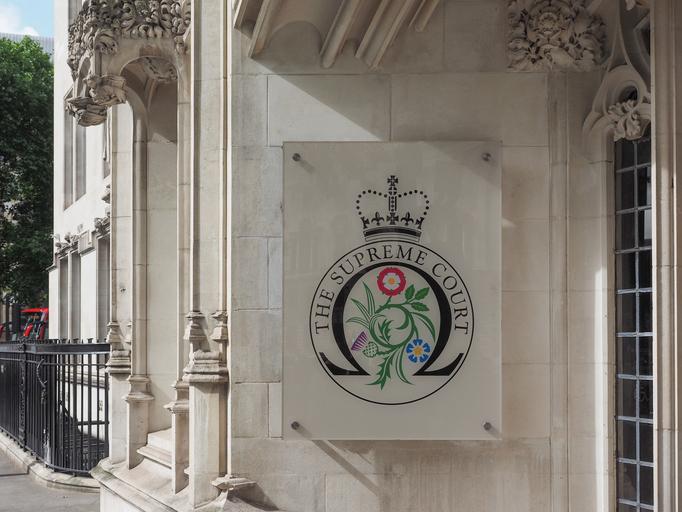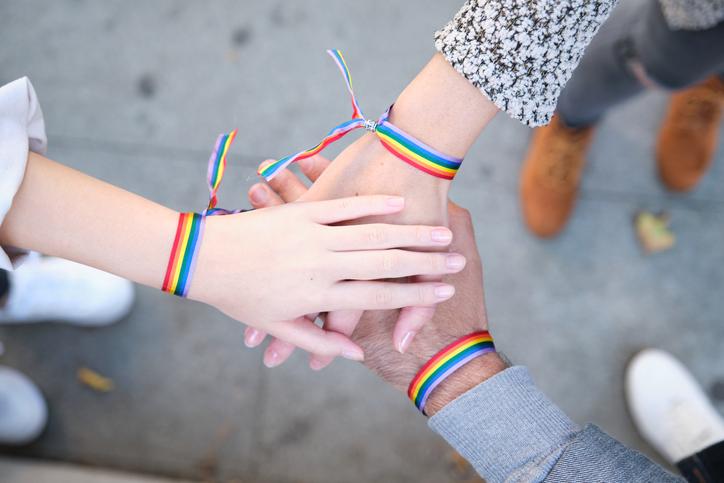
‘We need to be united, confident and proud of who we are’: thoughts on the Supreme Court ruling
You may also like
“I’m not in the wrong body, I’m in the wrong society,” observed Juliet Jacques in her Trans: A Memoir. For trans, non-binary and genderfluid people in the UK, that certainly feels the case at present. The recent Supreme Court ruling, based on a reading of biology that is almost pre-Darwinian in its crude essentialism, conflicts with their lived experience and knowledge of who they are. This is compounded by the ready tendency of politicians and the commentariat to misleadingly mansplain what the ruling might mean in practice. Those of us who are gender non-conforming, already round pegs in the square holes of this binary-based society, are naturally anxious, concerned and angry at the thought of being driven back into the closet by the new wave of very publicly voiced misinformation the Supreme Court has – perhaps inadvertently – unleashed.
After all, the Supreme Court does not make the law but is supposed to clarify it. This is what it claims to have done by stipulating that “woman” in the 2010 Equality Act means a “biological woman”: a term they do not define. Therein lies the mischief, having already led to several incidents of men aggressively taking it upon themselves to visually determine whether those going into women’s toilets pass this test. It goes without saying that it is incumbent upon universities to ensure such vigilantism does not occur on campuses, and us to seek reassurance that they will do so. The first rule is that we must not suffer in isolation and silence.
Meanwhile, universities need to be clear that the law – whatever the commentariat claim – has not changed. The protections the Equality Act affords gender-nonconforming people from discrimination, harassment and victimisation remain in place. There is no duty on public bodies to stipulate – let alone police – who passes water in which facilities. Indeed, how could there be, when most public toilets – including university ones – are already serviced by both cis male and female attendants. The Supreme Court ruling merely allows restrictions on grounds of “biological sex”, many of which were already in the legislation. In these circumstances, the silence so far of many universities on the subject can be seen as appropriate, for, in principle, no significant change has occurred.
Yet, even more than before, campuses are potentially sanctuaries for gender-nonconforming people. This group now may include all those who are not automatically perceived as gender-conforming in wider society. We are not just talking about butch lesbians here: my petite femme partner still regularly gets misgendered when she wears a jacket. For everyone who is likely to suffer more harassment and micro-aggressions in the street in the current climate, it is important that universities assure them that our campuses are safe and inclusive spaces. Universities do not have to mention the Supreme Court, but they should be reaffirming that message and their values.
- Ways to improve the equitable inclusion of LGBTQ+ people in research and higher education
- How LGBTQ leaders navigate a predominantly non-LGBTQ world
- Spotlight guide: Dealing with division - the polarised university
They may also need to look at their counselling services. These are generally calibrated to support student academic life. Support for trauma victims may need to become more conspicuous in the range of services offered. Ditto legal advice for those who get harassed in the street or discriminated against in the job market when they graduate. Then there’s the need to grasp that the problem of “trans bladder” – urinary infections caused by not daring to use public toilets – may well become increasingly common. Accordingly, universities should not push the gender-nonconforming to use non-gendered disabled toilets, to the detriment of both groups.
Universities should provide advice as well as reassurance for gender-nonconforming members of their communities. The trauma of growing up in the wrong society already means we are differentially prey to mental health issues and suicide ideation. These can be exacerbated by isolation and misunderstanding. The Supreme Court may have failed to listen to the gender nonconforming in their hearing and verdict, but universities should avoid making the same mistake. It has been reassuring to have colleagues reaching out in support and solidarity over the past week, and line-managers should be doing the same.
Similarly, gender-nonconforming individuals can help to support each other. Those who would bully us prey on vulnerability. We need to be united, confident and proud of who we are. In coming out, we have already achieved so much, and we should not let anyone take that achievement from us.
Maybe we also need to change the language. Just as the shift from labelling foods “vegetarian” to “plant-based” seems to have increased their public acceptability, perhaps we can achieve the same by making “gender non-conforming” the go-to phrase? It is a more useful and inclusive term – it can also encompass those who are intersex. This is a far more numerous but relatively invisible group compared to trans people who, in their very existence, undermine the Supreme Court’s “clarification”. Using “gender nonconforming” pushes back against a public discourse in which all attention is frequently and unhelpfully focused upon trans women.
That said, those of us who are gender-nonconforming can feel exhausted by the emotional labour of constantly explaining ourselves to the uncomprehending, on-campus as well as off. There are plenty of simple guides provided online by bodies like Gendered Intelligence. Maybe we need to be carrying cards to give out to those colleagues who express hostility or misunderstanding? So-called “gender-critical” beliefs are protected under the Equality Act, but not the acts of discrimination and harm they sometimes lead to.
That brings me to a final, crucial point. Amid the welter of misinformation being spouted, those of us whose rights are most at risk need to know what they are. We need to push back against attempts to misinterpret and misapply the Supreme Court ruling to our detriment. We need to use humour as well as anger, to take the piss out of those who would determine where we can ourselves undertake that simple human act. We should avoid doomscrolling, particularly last thing at night.
Not least, we ought to be proud of what we have achieved simply by being ourselves. In the process, although we may be in the wrong society, we need to ensure that the societies we inhabit on campus are ones where we are seen, understood and respected.
Pippa Catterall is professor of history and policy at the University of Westminster.
If you would like advice and insight from academics and university staff delivered direct to your inbox each week, sign up for the Campus newsletter.




